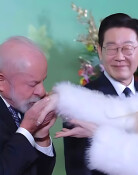[Editorial] Service Sector Reform
[Editorial] Service Sector Reform
Posted June. 13, 2006 03:08,
In the first round of the FTA negotiations, the U.S. decided not to ask Korea to open its education and health care service market. Apparently, the U.S. sees no need to enter the Korean market since a large number of Koreans are already coming to the country for study or for medical treatment. Thanks to such Korean visitors, the U.S. hotel, tourism, and shopping businesses are enjoying a boom. Thus, there is little reason for the U.S. to enter the Korean market and suffer from a myriad of regulations and hostile attitudes of Koreans.
Koreas chief negotiator Kim Jong-hoon affirmed that the U.S. made clear it has no interest in Koreas institutional changes for non-profit organizations related to education and health care services. That is the only natural position for the U.S. to hold because it has no reason to have interest in institutional improvements that will only strengthen the competitiveness of Koreas service industry. As long as the Korean government ignores high-quality demand in the domestic service market and sticks with regulations for equality, the quality of the domestic service industry will suffer and more Koreans will prefer and purchase from the U.S. service market.
Opponents to Korea-U.S. FTA argue that Koreas public medical insurance and public education system will crumble once private medical organizations and foreign educational institutions are allowed into Koreas market. However, that is far from the truth. In the era of globalized consumption, more regulations on the domestic service industry will mean less competitiveness for it. The rich can directly purchase foreign services, but the middle class and poor will have no choice but to use low-quality domestic services. Eventually, the domestic service industry will be undermined as a whole, creating a vicious cycle.
Last year, Koreas education deficit reached $3.4 billion or three trillion won. Health care deficit is also estimated to be $400 million. Total service balance recorded a deficit of $13.1 billion. Already, the first quarter of this year posted $5 billion deficit. According to Samsung Health Care Management Research Institute, the competitiveness of Koreas medical industry is only 25 percent and 38 percent of the U.S. and Japan respectively. The Korean government originally intended to take advantage of an FTA with the U.S. to boost competitiveness of domestic education and health care service market, but it now seems difficult to pursue that goal.
The only option left for Korea is to reform itself. Competition must be introduced to the education and health care sector against the will of collective egotism of groups such as Korean Teachers & Education Workers Union. While improving the quality of public health care and education service, the government must give permission to private medical organizations and educational institutions to satisfy high-quality demand. This is what the government must do for the middle class and average citizens.







